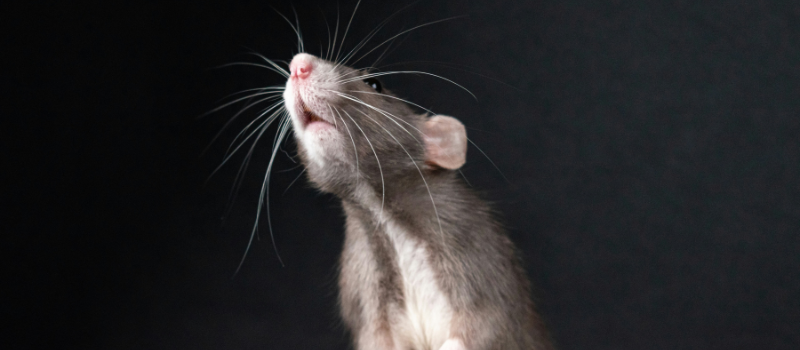Thanks to operant conditioning, you've been trained like a circus animal…and you didn't even get peanuts for it.
Right now, your brain is calculating whether reading this article will give you enough dopamine to justify the effort. It's weighing the potential reward (learning something interesting) against the cost (using actual brain cells). This cost-benefit analysis is happening automatically, below your conscious awareness, and it's the reason you do pretty much everything.
This is operant conditioning — where your brain is basically an advanced reward-seeking missile that's been programmed by every consequence you've ever experienced.
You didn’t consciously choose to check your phone 96 times yesterday. Nope. That was operant conditioning. Think you decided to hit snooze this morning? Not really. Your brain learned that hitting snooze removes the annoying alarm sound, so now you're trapped in a cycle of sleep-button addiction.
Every like, every paycheck, every just-one-more-episode binge — they're all part of an elaborate behavioral training program that's been running your life since birth. The wild part is that you're simultaneously the trainer and the trained, the scientist and the lab rat, the puppet and the puppeteer.
B.F. Skinner figured this out by watching rats press levers for food pellets. And (for better or worse) you're not that different from those rats. You're just pressing fancier buttons for fancier rewards.
Time to meet your inner lab rat.
What Is Operant Conditioning?

Operant conditioning is a learning process where your behavior is shaped by its consequences. If something good happens after you do something, you're more likely to do it again. If something bad happens, you're less likely to repeat it.
Your brain is keeping a running tally of "worth it" versus "not worth it."
Unlike classical conditioning (where your brain makes automatic connections between unrelated things), operant conditioning is all about choice and consequence. You actively do something, the world responds, and your brain takes notes for next time.
Your brain is constantly running experiments. It tries behaviors, measures the results, and adjusts accordingly. Touch a hot stove? Brain files that under "never again." Get a compliment for your outfit? Brain bookmarks that combination for future use.
The operant part comes from the fact that you're operating on your environment — you're doing stuff that changes what happens to you.
You're not just passively receiving stimuli like Pavlov's dogs. You're actively pushing buttons, making choices, and dealing with whatever consequences show up.
This is the operating system running your daily life.
- Why do you show up to work? Because you get paid.
- Why do you avoid parking illegally? Because tickets suck.
- Why can't you stop scrolling social media? Because your brain has learned that scrolling sometimes produces dopamine hits.
Your brain has been conducting behavioral experiments since birth and publishing results in the form of your habits.
Say Hello to B.F. Skinner: The Man Who Figured Out Brains

B.F. Skinner, Harvard psychologist, spent the 1930s and 40s putting animals in boxes (literally called Skinner Boxes because the man was not big on creative naming) — and watching them figure out how to get food.
Press a lever, get a pellet. Don't press the lever, stay hungry.
Revolutionary stuff, right?
Then, Skinner got diabolical: he started messing with the reward schedule. Sometimes the rats got food every time they pressed the lever. Sometimes only after 10 presses. Sometimes randomly.
And he discovered that unpredictable rewards created the most obsessive behavior.
Sound familiar? That's because Skinner accidentally invented the psychological blueprint for slot machines, social media notifications, and pretty much every addictive app on your phone.
The man taught pigeons to play ping-pong, trained them to guide missiles during WWII (Project Pidgeon), and figured out that consequences shape behavior more powerfully than intentions, willpower, or good advice.
Skinner proved that we're all just very fancy rats pressing very fancy levers for very fancy food pellets.
And honestly…he wasn't wrong.
The 4 Types of Operant Conditioning
Psychology loves to overcomplicate things, but operant conditioning breaks down into four simple concepts. Add good stuff, remove bad stuff, add bad stuff, remove good stuff.
Your brain is running a continuous cost-benefit analysis, and these four types are how it keeps score.
1. Positive Reinforcement
You do something, good things happen, you do it more. Get a paycheck for showing up to work? You keep showing up. Receive likes for posting that selfie? You post more selfies. Your brain learns "this behavior = rewards" and files it under "definitely do again."
This is why your phone buzzes with notifications — every buzz might bring a dopamine hit, so you keep checking.
2. Negative Reinforcement
You do something that makes annoying things go away, so you keep doing it. Hit snooze to stop the alarm? Take aspirin to stop a headache? Put on a seatbelt to stop that annoying car beeping? You're being negatively reinforced.
Note: This isn't punishment. You're still being rewarded — just by having something unpleasant removed.
3. Positive Punishment
You do something, bad things happen, you (hopefully) stop doing it. Get a speeding ticket? Touch a hot stove? Say something stupid and get roasted? Your brain learns "this behavior = pain" and files it under "maybe don't.
4. Negative Punishment
You do something, good things get removed, you stop doing the thing. Get grounded and lose your phone? Drink too much and feel terrible the next day? Your brain learns that certain behaviors cost you things you actually want.
Real-Life Examples of Operant Conditioning in Your Daily Life

Your entire day is basically one long operant conditioning experiment, and you're both the scientist and the lab rat. Here's how your brain gets trained without you realizing it:
- Your Phone Addiction: Every notification is a potential reward (text, like, email), so you check your phone constantly. Your brain has learned that picking up your phone sometimes produces dopamine, which is basically digital crack cocaine.
- Social Media Scrolling: You never know when you'll see something interesting, funny, or rage-inducing. This unpredictable reward schedule is the same psychology that makes slot machines addictive. Just one more scroll...
- Your Job: You show up, do work, get money. Remove the paycheck and watch how quickly your motivation disappears. You're not passionate about spreadsheets — you're operantly conditioned.
- Snooze Button Slavery: Hitting snooze removes the annoying alarm sound (negative reinforcement), so you keep doing it. Your brain has learned that this button makes bad sounds go away.
- Netflix Binges: Every episode ends on a cliffhanger, giving you just enough reward to want the next one. Plus, Netflix helpfully removes the effort of choosing by auto-playing the next episode.
- Junk Food Cravings: Sugar and fat create immediate pleasure (positive reinforcement), while the negative consequences (weight gain, feeling sluggish) happen later. Your brain prioritizes immediate rewards over delayed punishments.
- Traffic Light Behavior: You stop at red lights because getting a ticket sucks (avoiding positive punishment). You're not being a good citizen — you're avoiding consequences.
How Operant Conditioning Actually Works in Your Brain
Your brain runs on a chemical reward system that's more sophisticated than any casino's player rewards program, and about twice as addictive.
And the star is dopamine — your brain's feel-good chemical. However, dopamine doesn't actually make you feel good when you get the reward. It gets released when you expect the reward.
Your brain is literally getting high off anticipation. Dope.
This happens in your brain's reward pathway, which connects areas like the ventral tegmental area and nucleus accumbens (the parts that make you want stuff). When you do something that leads to a good outcome, these areas light up and strengthen the neural pathways associated with that behavior.
Strangely, your brain gets more excited about unpredictable rewards than guaranteed ones (just like the lab rats). That's why you can get bored with your regular salary but lose your mind over a scratch-off lottery ticket. Variable rewards create stronger conditioning than consistent ones — which explains why slot machines and social media notifications are so dang effective.
Your brain also uses prediction error to update its behavioral algorithms.
- Expected reward and got it? Cool, keep doing that.
- Expected reward and didn't get it? Hmm, maybe try something different.
- Got an unexpected reward? Definitely do that again.
Why This Matters (Beyond Psychology Class)

Learning how your brain works and understanding operant conditioning is like unlocking the cheat codes for your own behavior (and everyone else's attempts to manipulate it).
- You're being operantly conditioned by everything. Every app on your phone, every loyalty program, every limited time offer tries to shape your behavior using these exact principles. Everything from notifications to streak counters are using operant conditioning to keep you engaged.
- You can finally build habits that stick. Want to exercise more? Stop relying on willpower and start designing your own reward systems. Finished a workout? Immediately do something you enjoy. Your brain will start connecting exercise with rewards instead of punishment. This is working with your psychology instead of against it.
- You'll recognize manipulation when you see it. That "buy now, limited time" pressure? Variable ratio reinforcement designed to trigger impulsive behavior. Those free samples at Costco? Positive reinforcement to make you feel good about the brand. Once you see the matrix, you can't unsee it.
- You can understand your own "irrational" behaviors. Can't stop checking social media? Your brain has been conditioned by unpredictable rewards. Keep procrastinating? You're probably being negatively reinforced by avoiding unpleasant tasks.
Knowledge is power, especially when that knowledge explains why you do what you do.
You're The Rat in the Maze…Now What?
Well, you've just realized your entire life is basically an elaborate behavioral experiment, and you've been both the subject and the unwitting participant.
But there’s a silver lining: now that you know the game, you can start playing it intentionally. Pay attention to what rewards are driving your behavior. Notice when apps, companies, or even people are trying to operantly condition you. Question whether that compulsive phone-checking is actually serving you, or if you're just a very well-trained lab rat.
Your brain will keep seeking rewards and avoiding punishments — that's literally how it's wired. You can’t change that.
The question is: are you going to let random consequences shape your behavior, or are you going to design your own reward systems?
Time to become the scientist of your own life instead of just the experiment.
The lever's right there. What are you going to do about it?
.png)

.png)
